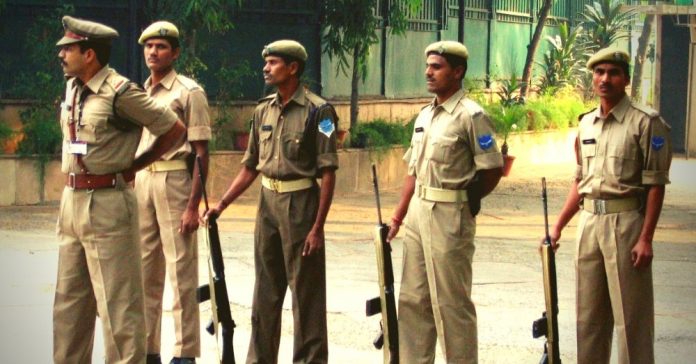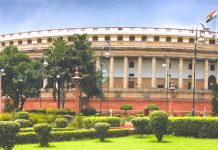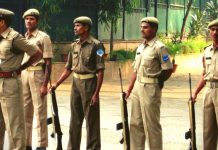This article is written by Akshita Gupta, from Symbiosis Law School, Noida. This article discusses Section 118A of the Kerala Police Act and why it was struck down.
Table of Contents
Introduction
The Kerala government has introduced an ordinance to amend the Kerala Police Act (2011) to include Section 118-A. Most activists, lawyers, and politicians have denounced the new amendment targeting social media users, and multiple petitions have been filed in the Kerala High Court opposing it. The author will go over the entire story of the newly amended Kerala Police Act, 2011.
The legal challenges to Section 118A of the Kerala Police Act, 2011 were far from over. To begin with, on November 21, 2020, the Kerala government passed the Kerala Police (Amendment) Ordinance, 2020, which added Section 118A to the Kerala Police Act, making intimidation, defamation, or insulting any person an offence punishable by imprisonment for up to three years and/or a fine of up to Rupees 10,000/-. Mr. Arif Mohammad Khan, the Hon’ble Governor of Kerala, has signed this ordinance implementing Section 118A of the Kerala Police Act.
Later, on Monday, November 23, 2020, Kerala Chief Minister Mr. Pinarayi Vijayan said that the provisions of Section 118A of the Kerala Police Act, 2011 will not be implemented during his tenure in office.
The purpose of establishing the provisions of Section 118A of the KPA, according to the CM, was to overcome or lessen the harassment encountered by many people on social media platforms. Women and the transgender community, in particular, have been subjected to a great deal of harassment on social media sites. It was mentioned that the provision was incorporated by ordinance and received widespread criticism; consequently, a separate decision will be made after a thorough discussion in the state assembly.
The provision
According to the provision, “Punishment for making, expressing, publishing or disseminating any matter which is threatening, abusive, humiliating or defamatory.─ Whoever makes, expresses, publishes, or disseminates through any kind of mode of communication, any matter or subject for threatening, abusing, humiliating or defaming a person or class of persons, knowing it to be false and that causes injury to the mind, reputation or property of such person or class of persons or any other person in whom they have interest shall on conviction, be punished with imprisonment for a term which may extend to three years or with fine which may extend to ten thousand rupees or with both.”
Objective of the provision
It was stated that the government was concerned about the rising number of crimes involving social media platforms. The existing laws, according to the Kerala government, are insufficient to address this issue, and such an ordinance was urgently needed to be implemented after the Hon’ble Supreme Court knocked down Section 66A of the Information Technology Act and Section 118(d) of the Kerala Police Act. The primary objective of bringing this amendment to the Kerala Police Act is to address the problem of false claims made on social media platforms, which undermine people’s liberty and dignity.
Many concerns have been received from many sections of society about the problem that has arisen as a result of the use of social media platforms. Women and transgender people make up the majority of the victims. This has had a significant impact on society. This affects not just the victims, but also their relatives. Even the media and other segments of society are in favour of enforcing this rule and having it implemented as quickly as feasible in the state.
Situation after the Amendment
Various types of replies were received from society shortly after the amendment was introduced on November 21, 2020. Many people who support the left democratic government have raised concerns about this amendment, and many social activists and political party leaders have criticized the Ordinance enacted by the Kerala government, claiming that it will limit individual freedom of speech. As a result, it was determined that the notification would be implemented immediately, and an appropriate choice would be made after a thorough discussion with all stakeholders.
The Chief Minister of Kerala also issued a press release requesting that anyone making false claims shall be restrained and cautious from doing so.
Grounds for challenging Section 118-A of the Kerala Police Act
Despite the guarantee given by Kerala’s Hon’ble Chief Minister that Section 118A would not be applied, the ordinance was later challenged. Four politicians, an activist, a law student, and a lawyer have petitioned the Kerala High Court to challenge and nullify the newly enacted provision.
- There is no clarification on the wordings: The petitioner’s first argument against this particular legislation is that the words mentioned in the provision are not clearly defined. As indicated in the provision, “injury to the mind,” but no definition of injury to the mind is given. Who will decide what constitutes an injury to the mind?
- The provision is already covered under the Indian Penal Code (1860), according to the petitioners, which indicates that the police can arrest someone without a warrant. Wrongdoings such as defamation and intimidation, on the other hand, are punishable under the Indian Penal Code and are non-cognizable.
- Article 19(1)(a) violation: The petitioners unanimously challenged Section 118A of the Kerala Police Act, claiming that it would result in an unjustifiable restriction of free speech and expression, which is a Constitutional right of citizens in this country.
- The petitioners cited the Supreme Court’s ruling in Shreya Singhal vs Union of India (2015), in which the Court stated that the possibility of certain types of speech becoming an insult, inconvenience, or nuisance cannot be a justifiable restraint on expression. In Shreya Singhal vs Union of India, the Hon’ble Supreme Court declared that Section 118(d) of the Kerala Police Act is in violation of Article 19(1) (a) of the Indian Constitution. The Court noted that the offence of “causing annoyance in an indecent manner” has the same level of vagueness and overbreadth. The penalty created for causing irritation in an indecent manner in pith and substance, according to the Court, would be under Entry 1 List III, which refers to criminal law, and thus be within the State Legislature’s jurisdiction.
- Section 66A of the Information Technology Act of 2000 is being reactivated: The petitioners further claimed that the Kerala government admitted that the new provision was introduced to cover the gap left by Section 66A of the IT Act, 2000. The petitioner argued that because the Supreme Court had already struck down the Section in Shreya Singhal’s case, there was no need to adopt this part, which is comparable to Section 66A of the ITA, 2000.
The path taken by ordinance
Following widespread criticism, the CPM-led LDF administration announced on November 24, 2020, that it would issue an ordinance to repeal the contentious change to the Kerala Police Act. On the afternoon of November 24, 2020, the Cabinet met and proposed that the Hon’ble Governor of Kerala, Mr. Arif Mohammed Khan, issue an ordinance repealing Section 118A of the Kerala Police Act, which received his assent on November 21, 2020. The High Court of Kerala issued an interim ruling on Tuesday, November 24, 2020, stating that no adverse action, suo motu case, or FIR would be filed under this Section until the government analyses it and makes a judgment.
The Kerala High Court has considered petitions contesting the ordinance. The petitions were heard by a bench consisting of Chief Justice S Manikumar and Justice P Chaly, who ruled that no adverse action will be taken based on this clause. On behalf of the government, Additional Advocate General Ravindranath KK appeared in Court and informed the judge that the administration was evaluating the situation. The Court questioned whether FIRs could be filed under the new clause because the ordinance had already taken effect.
The Additional Advocate General guarantees the Court that the government will not take any coercive action based on this Section until it reconsiders the issue. The Hon’ble Court accepted state Additional Advocate General KK Ravindranath’s position that the newly-introduced change to the state Police Act will result in no adverse action, registration of first information reports, or suo motu cognizance.
Revocation of the ordinance
An ordinance to repeal the ordinance to insert Section 118A of the Kerala Police Act was proposed, which is a very unusual process in which an ordinance is passed to repeal or negate another ordinance. Ordinances are frequently made to repeal or nullify acts, but enacting an ordinance to repeal an ordinance is extremely rare. The ordinance will remain in effect for six weeks after the assembly approves a resolution condemning it, according to Article 213(2) of the Constitution.
Article 213(2) (a) states that a resolution condemning an ordinance must be voted by the legislative assembly and agreed upon by the legislative council in order to revoke it before the expiration date. Another method of repealing the ordinance before its expiration date is provided in Article 213(2) (b), which states that the Governor may withdraw the ordinance at any time.
On November 25, 2020, the Kerala State Cabinet resolved to write to Kerala Governor Mohammad Arif Khan to request that this legislation, which criminalized certain types of publishing and communication, be repealed. On November 25, 2020, the Hon’ble Governor of Kerala signed an ordinance to repeal the contentious Section 118-A of the Kerala Police Act, after careful consideration and assessment of all possibilities. The Governor of Kerala has invoked the right conferred on him by Article 213(2)(b) of the Indian Constitution, which allows him to revoke the ordinance at any moment.
Conclusion
To summarise, the Kerala Government has chosen to remove this Section from the Kerala Police Act after pointing out the Constitutional viability of this particular amendment on the grounds of unjustifiable restriction of free speech and expression. The Kerala State Cabinet had previously informed the Kerala High Court about the withdrawal of this Section on November 25, 2020, and had also resolved to write to the Governor of Kerala about it.
References
- https://www.barandbench.com/news/litigation/kerala-hc-Section-118a-petitions-challenge-grounds
- https://www.thehindu.com/news/national/kerala/kerala-police-act-amendment-no-fir-will-be-registered-government-assures-high-Court/article33168619.ece
- https://timesofindia.indiatimes.com/city/thiruvananthapuram/all-you-need-to-know-about-draconian-kerala-ordinance/articleshow/79361784.cms
LawSikho has created a telegram group for exchanging legal knowledge, referrals, and various opportunities. You can click on this link and join:
https://t.me/joinchat/J_0YrBa4IBSHdpuTfQO_sA
Follow us on Instagram and subscribe to our YouTube channel for more amazing legal content.
 Serato DJ Crack 2025Serato DJ PRO Crack
Serato DJ Crack 2025Serato DJ PRO Crack











 Allow notifications
Allow notifications


